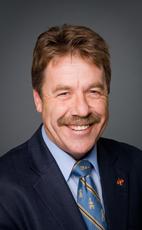Mr. Speaker, my, my, my. Listen to the Reform Party talk about unions.
Being a labour activist for many years and being part of the Canadian auto workers for the last 18 years, I have to say that I take offence with the Reform Party when it says that unions are not democratic. The fact is they are probably the most democratic organizations in this country, if not more so than this House.
I have worked with them. I can guarantee that the CLC for example which covers 2.3 million unionized workers is the most democratic organization in this country. If members do not believe that, I encourage them to spend a weekend with unionized workers to understand exactly what is going wrong.
One of the most offensive things that happens to bargaining and to unionized people is when employers have the right to scab labour. The member was talking about the fact that unions make unreasonable demands but she does not mention the fact that some employers make unreasonable demands on their labourers.
We have to argue this point in light of both facts. When we go to arbitration or any kind of labour relations, which I have done for many years, the use of scab labour, the threat of scab labour and the threat of back to work legislation deflate rank and file workers. It is unacceptable that scab labour is still allowed. My party and I would definitely vote for any legislation that outlaws the use of scab labour or forced back to work legislation.
In my most humble opinion anything that would violate a union is the Reform Party. We are the only federal party in the House with a staff that is unionized, has an association and bargains for its rights in Ottawa. No other official party in the House allows its staff to organize or unionize. We encourage our staff to organize and unionize under an umbrella.
I would love to see the Reform Party encourage its staff to do the same so its staff can argue in balance for fair wages and fair compensation.

